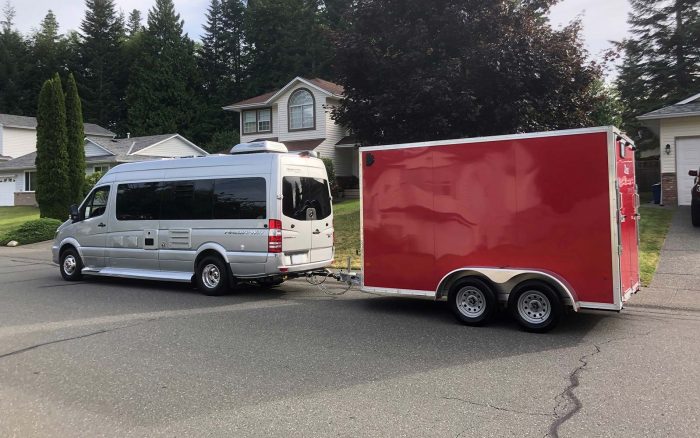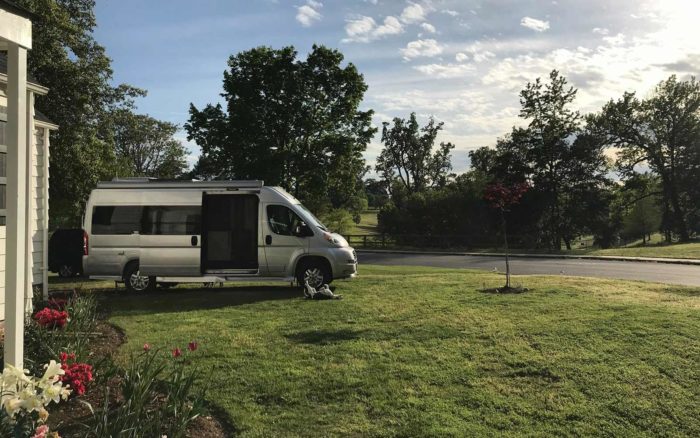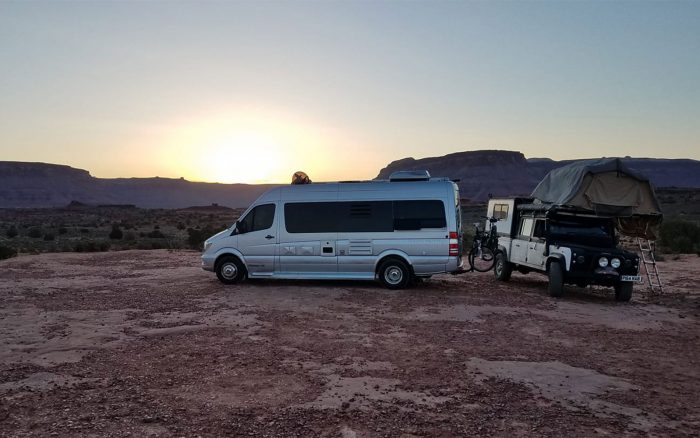Camping Strategies For Off-Grid Living | Staying Connected With WiFi
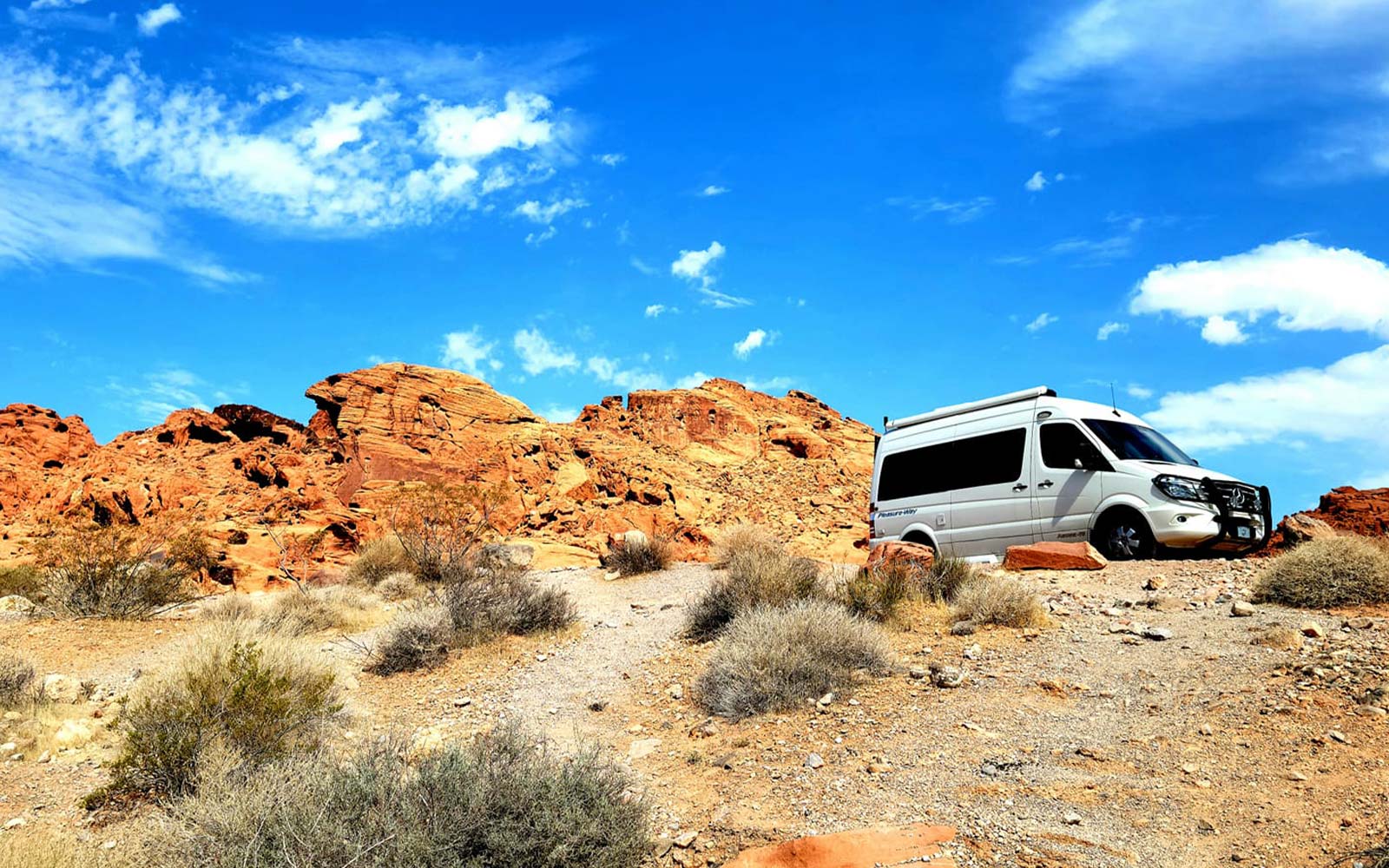
Whether you are a modern nomad or enjoy the occasional off-grid adventure, knowing how to access WiFi can be crucial. WiFi is not just a luxury, it is a necessity for many of us. We depend on it for work and play. There are many different options for accessing the internet when you are off-grid camping, some of them free and others that will cost you. Where you decide to camp can greatly affect what your options will be.
Do you need WiFi in your RV?
“When you camp, you need to disconnect.” It’s a mantra that many have. There’s a certain amount of truth to that statement. It’s the whole point of camping in the first place, right?
But, if you’re someone who works online for a living – or as someone who spends most of your days working from home – it can be hard to completely disconnect. For these reasons, it can be a good idea to maintain Internet access in your RV via satellite, hotspots, or cell phone tethering. But what exactly do you need if you’re considering staying connected while out on the road?
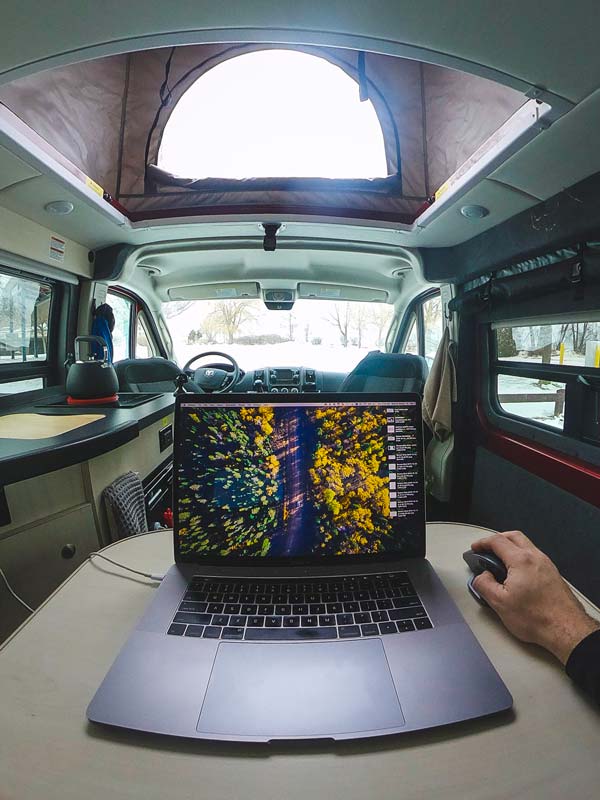
What is the best way to get WiFi while off-grid camping?
When you’re out camping in the wilderness, it can be hard to get a good wifi connection. Although many camping areas have internet access, it’s often slow and unreliable. So what do you do when you’re in the middle of nowhere and you need a good internet connection? Here are some options:
Hotspot smart device data connection
In order to get internet without WiFi, use your cell phone as a hotspot whenever you need internet access while off-grid camping in your RV. Simply go to ‘settings’ and ‘personal hotspot’ then click the button to allow others to join with a password. Then share the password with those you are happy to share your wifi hotspot with. Having an unlimited data plan will enable you to work remotely while traveling through remote areas of North America.
Portable WiFi hotspot
One option to get WiFi while camping off-grid is to use a portable wifi hotspot. A portable WiFi hotspot is about the size of a deck of cards, and it connects to any local cellular signal in the area. The hotspot then broadcasts that signal into a wifi network that all of your devices can connect to—meaning you can have internet access anywhere there’s cell coverage.
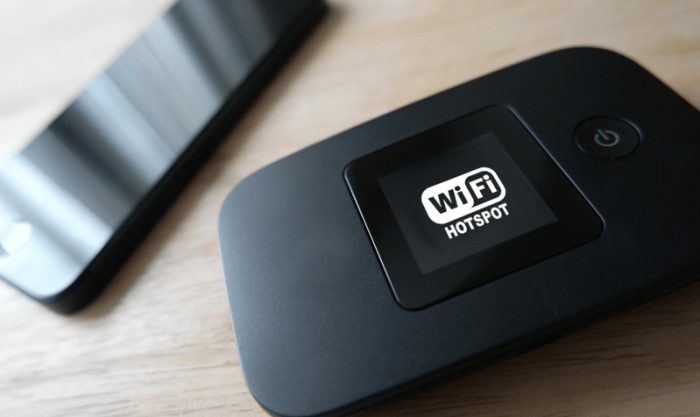
One thing that could hinder your mobile hotspot experience is data caps, which many providers impose on their customers. How it works: once you go over your monthly data allowance, your internet connection will be slowed down for the remainder of the month or stopped altogether until you pay for more data (you’ll also need to make sure that your phone plan allows tethering). If you live off-grid full-time or travel with a few other people who all want reliable internet access, this can become an expensive habit.
Signal booster
What is a Signal Booster? Sometimes referred to as a modem signal booster, a cellular booster amplifies a cellular signal within a given area to achieve faster data speed and a wider range of coverage with fewer drops. A cellular booster will not work if there is no signal to start with. These can cost anywhere between $500 and $1000 depending on what kind of coverage area you’re going for. Check out weBoost for a few different options.
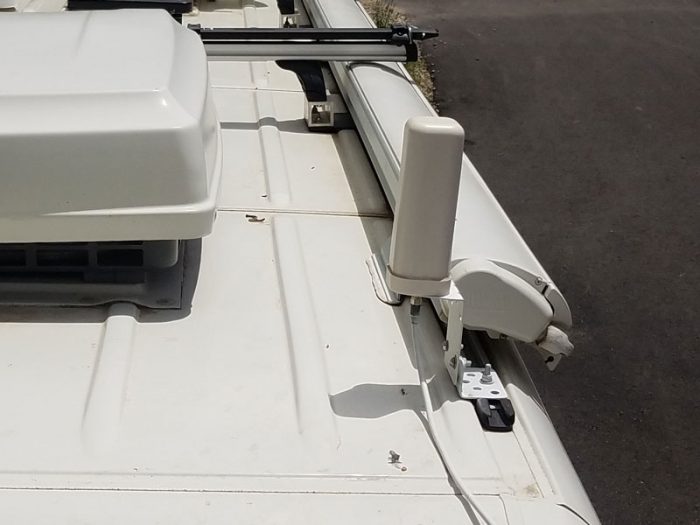
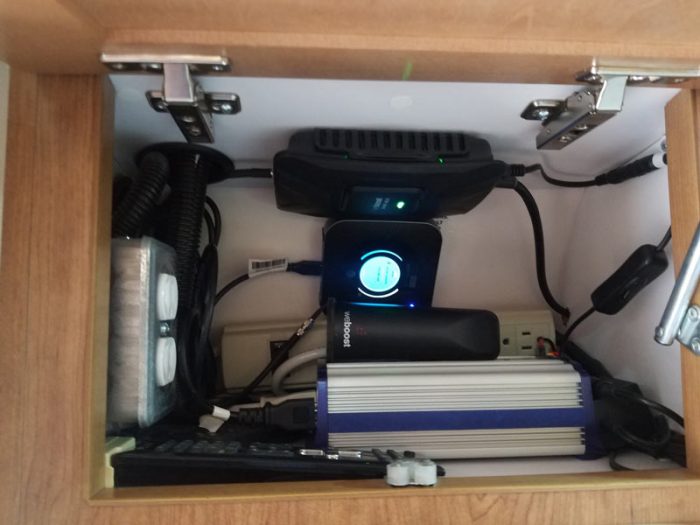
Satellite WiFi
Another option for getting wifi out in nature is using satellite wifi. Satellite internet is different from traditional wifi because it doesn’t rely on cell phone towers. Instead, it uses satellites orbiting the earth to provide access to high-speed internet. This means that your connection won’t be limited by physical access—you can get the same speeds and connection quality whether you’re in the city or out in nature! So if you like to live a life that’s as low commitment as possible, this is definitely worth a look.
Accessing WiFi at campgrounds
Every campground is different, and some offer free WiFi as part of their amenities while others do not. Unfortunately, many parks are in rural areas that don’t have internet access, so you may have to get creative with your connectivity options.
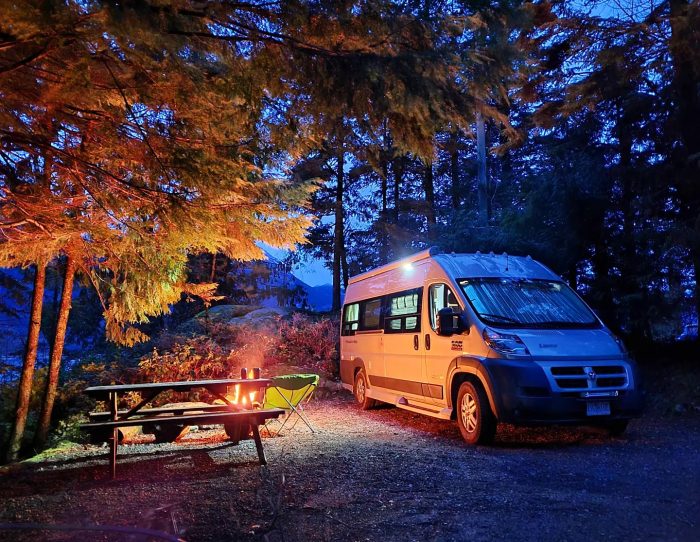
If the campground doesn’t provide any internet service, there’s a good chance that the nearest town will have at least one public library or municipal building with Wifi hotspots. The library will be your best bet for accessing the internet on a continual basis – it’ll have sturdy infrastructure, reliable speeds, and multiple computers for use by patrons. It can also be a great place to catch up on reading and research when you need to get out of the RV for a bit.
If you just need an occasional connection or only want to browse online from your phone rather than from a full computer system, check out nearby coffee shops and restaurants (many locations offer free WiFi).
The choice is yours
So there you have it, a few options for getting Wifi while camping (or really anywhere else where you have no data connection). One of the great things about going off-grid is that you get to spend most of your time being present and in the moment. And it doesn’t hurt that you won’t have to worry about your data connection cutting out while streaming your favorite series or catching up on that article list.


